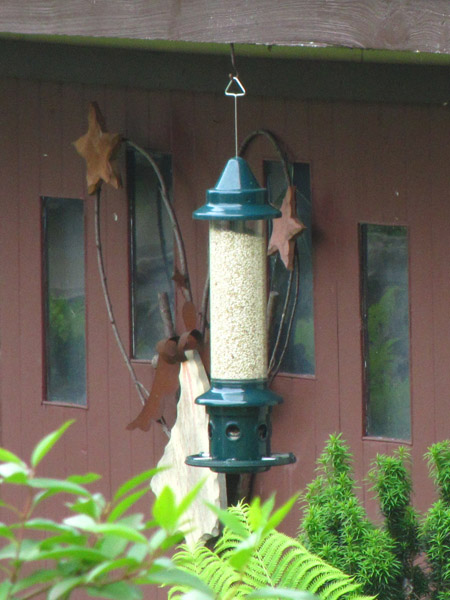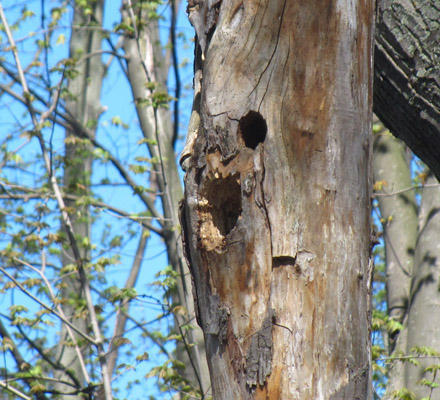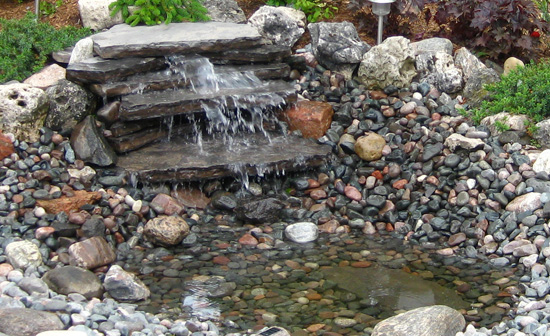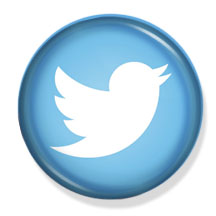Attracting Birds
There are four main components that birds are interested in and these components can be added to attract birds to your yard;
• Food
• Places to nest
• Water
• Landscaping
Without food, water and shelter birds will not flock to an area. Each of these components improve the chance that birds will visit and possibly make your backyard their home. Attracting birds can have several advantages. Many birds can lower the pest population of insects that eat garden plants while other birds are fun to watch!
Food
Possibly the easiest way to attract birds to your yard is by adding a birdfeeder. While many birds are generally wary of anything new, it won't take long for them to become frequent visitors to your yard. Relative to their size, birds require large quantities of food. Different birds will visit depending on the seed or food that's offered; however, bird seed can be costly and may be ate by other animals such as squirrels and chipmunks. Landscaping with native plants can provide food for birds as well as add places for birds to nest. This provides another alternative to attracting birds to your yard without food.

Bird feeder with safflower seeds
Places to Nest
There are several ways species tend to nest and different shelters can be added to your yard to improve the chance of getting different species. Primary cavity dwellers (such as woodpeckers) tend to make their own nesting cavities in trees that are easier to bore into and are often dead. Since dead trees are structurally unsound they are often removed in urban environments. This lowers the chance that you will see a woodpecker making a nest in an urban environment.

Natural cavity created by a primary cavity dweller
Secondary cavity dwellers such as bluebirds, chickadees, titmice, nuthatches, wrens, wood ducks and most owls nest in cavities that have been made by other birds or animals. A lack of trees for primary cavity dwellers will result in fewer spots for secondary cavity dwellers as well. Nesting boxes can provide a solution to attract these birds to your yard. Choosing a nestbox with the correct dimensions is key for sucessfully attracting birds to your yard.
Other birds such as robins or oriels tend to nest on or below tree branches making their nest out in the open. By providing shelves or plants that these birds prefer it is possible to have these birds nesting in your back yard as well.
Water
Providing a source of clean water for birds to drink and bathe in will improve your chances of attracting birds. It is important to create a water feature that is easy to maintain and does not allow mosquitoes to proliferate.
The waterline in the waterfall below can be adjusted to remove the small pond if mosquitoes are a concern. Below the flat rock at the bottom of the pond there is a pump that directs circulates water to the top of the flagstone steps.

This waterfall is easy to maintain and has a natural look.
Landscaping
Adding plants to your yard can attract a wide variety of bird species and offer a more natural diet for birds compared to bird feed. Often plants that attract birds are messy, so picking the correct location is a must. Mulberries and serviceberries are medium sized trees that produce fruit that robins, waxwings and other songbirds enjoy.
Some shrubs are able to provide a sheltered area where birds can build nests. Viburnum and some cultivars of dogwood do an excellent job at providing cover. Check out the native tree page for more ideas to incorporate native trees into your landsacpe!



















